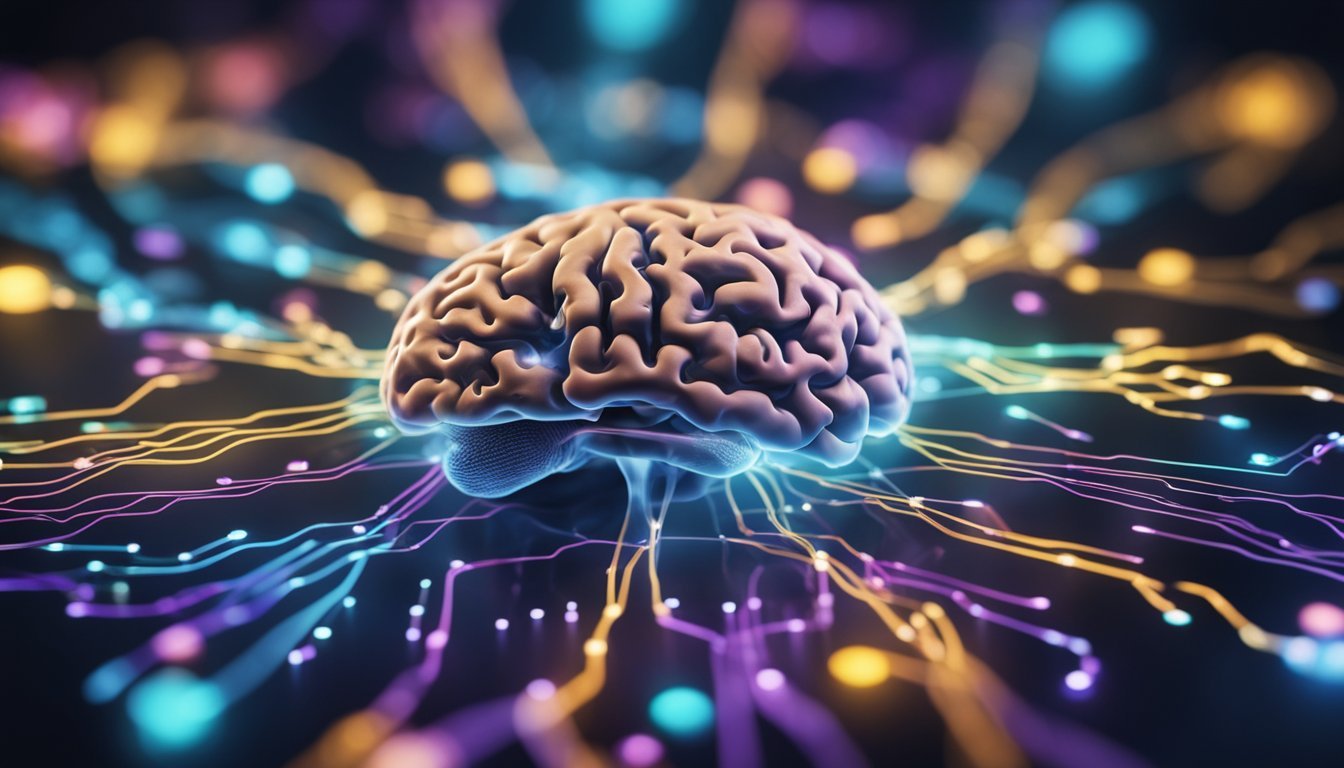9 Stories of ADHD
Insightful Documentaries to Enhance Awareness
ADHD is a condition often misunderstood, yet it's increasingly coming into the public eye through a variety of narratives. These stories, especially those shared through documentaries, offer an intimate window into the lives of individuals navigating ADHD.
Through cinematic storytelling, viewers can gain deeper insights into the complexities and unique perspectives associated with ADHD. Documentaries not only challenge common misconceptions but also explore the strengths and challenges faced by those living with the condition, ultimately fostering greater empathy and awareness.
1) "How to ADHD" by Jessica McCabe (2023)
Jessica McCabe's "How to ADHD" is a resource that has significantly impacted both individuals with ADHD and those seeking to understand it better. The work stems from her popular YouTube channel, which has served as a beacon for many since its inception in 2015.
The channel offers a mix of personal experiences and expert insights, creating a platform that is both informative and relatable. McCabe's book, which became a New York Times bestseller, extends these themes, providing practical strategies and insights.
Diagnosed with ADHD at age 12, McCabe utilizes her experiences to guide others in navigating a world not always suited to their needs. Her approach combines warmth and clarity, making complex topics accessible to a broad audience.
Through her candid narrative, McCabe has created a supportive community that fosters understanding and acceptance. This work stands as a testament to the power of sharing personal stories to inspire and educate others.
For more information on "How to ADHD," visit IMDb.
2) "A Mind Like Mine" (2021)
"A Mind Like Mine" is a documentary directed by Karen O'Donnell, focusing on the lived experiences of individuals with ADHD.
The film was partly inspired by O'Donnell's personal journey as a mother helping her son navigate his own ADHD challenges at school.
O'Donnell aimed to bring these stories to light to foster greater understanding and empathy among educators and parents.
Through interviews and personal narratives, the film explores the unique strengths and challenges faced by those with ADHD.
It highlights strategies for advocacy and empowerment, suggesting practical techniques to help individuals thrive.
The documentary has been showcased in various screenings, including in Toronto, providing a platform for discussion and education on ADHD topics.
O'Donnell's work in this film contributes significantly to the broader conversation around neurodiversity and mental health.
Find more information on IMDb.
3) "ADD & Loving It?!" with Patrick McKenna (2009)
"ADD & Loving It?!" is a documentary that combines humor and expert insights to address Attention Deficit Hyperactivity Disorder (ADHD). Released in 2009, it follows comedian Patrick McKenna as he seeks an ADHD diagnosis and learns about the condition from various experts.
The documentary provides an engaging exploration of ADHD, highlighting how individuals with the disorder can harness their unique strengths. Through McKenna’s personal stories, viewers gain insights into how ADHD impacts daily life, relationships, and self-perception.
The film effectively dispels common misconceptions by presenting ADHD as a manageable condition rather than a limiting one. This approach resonates well with audiences, providing a blend of humor and factual information.
For more details, visit IMDb.
4) "Anatomy of Attention" (2022)
"Anatomy of Attention" (2022) explores the intricate workings of attention in the human brain through the lens of attention-deficit/hyperactivity disorder (ADHD). The film looks into historical perspectives on ADHD, once termed 'hyperactivity' or 'hyperkinesis disorder,' to illustrate its evolution in understanding and diagnosis over time.
The documentary delves into scientific studies, particularly focusing on how structural brain anatomy and connectivity may differ in those with ADHD. It emphasizes recent research exploring the influence of childhood ADHD symptoms on adult brain macro- and microstructure. These insights aim to broaden viewers' perspectives on how ADHD manifests across different life stages.
The film also highlights key studies identifying the brain areas involved in attention functions, such as the posterior parietal lobe, which is crucial for orienting. Through expert interviews and personal stories, "Anatomy of Attention" provides a comprehensive look at current theories and challenges in ADHD research.
For more information, visit the film's IMDb page.
5) "My Beautiful Broken Brain" (2014)
"My Beautiful Broken Brain" is a documentary film that explores the life of Lotje Sodderland after she suffered a hemorrhagic stroke at the age of 34. The stroke significantly impacted her cognitive abilities, leaving her with aphasia and other challenges associated with brain injuries.
Viewers are taken through Lotje's journey as she navigates the complexities of her new reality. The film details her experiences with rehabilitation and adaptation to a world that now appears different. It is an intimate look at her determination and resilience.
This documentary also received attention for the involvement of filmmaker David Lynch, who served as an executive producer. His interest in the project highlights the film's artistic and humanistic approach to understanding brain trauma.
For more about "My Beautiful Broken Brain," visit IMDB.
6) "The Disruptors" (2022)
"The Disruptors" is a compelling documentary that offers a comprehensive look at ADHD. Directed by Stephanie Soechtig, this film stands out as one of the first to tackle the intricacies of how ADHD affects children and adults.
This film features interviews with numerous individuals living with ADHD. Their candid stories reveal both the challenges and the unexpected advantages of having an ADHD brain.
By following five households, "The Disruptors" shines a light on the daily realities of parenting and living with ADHD. It dispels common myths about the condition, promoting a deeper awareness among audiences.
The documentary's focus on real-life narratives offers hope and insight into living with ADHD. The stories emphasize the unique perspectives and skills that often accompany this diagnosis.
Explore more about the film on IMDb.
7) "Take Your Pills" (2018)
"Take Your Pills" (2018) is a documentary exploring the increasing use of prescription stimulants like Adderall. It examines how these drugs have become integral in various spheres such as academics, athletics, and professional environments. With a focus on personal stories, the film provides insights into the motivations and consequences of stimulant usage.
The documentary raises important questions about the societal pressures that drive the demand for performance-enhancing drugs. It captures how people justify their use to meet high expectations, shedding light on the complex nature of medication dependence. The film also touches on broader themes such as mental health and the cultural obsession with productivity.
"Take Your Pills" challenges viewers to think critically about medical ethics and personal choices in the hypercompetitive landscape of modern society. It underscores an ongoing debate on the balance between necessity and dependency, stimulating conversation around how stimulants are used today.
For more information about the film, visit IMDB.
8) "Embracing ADHD" (2020)
"Embracing ADHD" is a compelling documentary released in 2020 that offers insights into the unique experiences of individuals living with ADHD. This film reframes ADHD not merely as a disorder but as an alternative way of thinking and experiencing the world. It encourages viewers to appreciate the strengths associated with neurodiversity.
Through a series of personal stories and expert interviews, "Embracing ADHD" highlights the significance of self-acceptance and advocacy. The documentary emphasizes the importance of understanding ADHD from multiple perspectives and fosters a sense of community among those affected.
Viewers witness how individuals navigate their lives with ADHD, showcasing both challenges and triumphs. The film aims to promote a more inclusive environment, encouraging society to recognize and value different cognitive processing styles.
For more details on "Embracing ADHD," visit the IMDb page.
9) "Different Brains!" with Hackie Reitman (2016)
"Different Brains!" is a documentary series hosted by Dr. Hackie Reitman. The series underscores the importance of understanding and embracing neurodiversity. Reitman engages with a range of experts and individuals who share personal experiences related to different neurological conditions.
Each episode features insights from people like Ron Large, an educator, and Ron Sandison who speaks about the power of memory in individuals with autism. These stories help illustrate the unique contributions and challenges faced by those with neurodiverse conditions.
The series discusses critical topics like employment opportunities for individuals with autism, featuring guests such as Thomas D'Eri. These discussions provide both practical advice and powerful testimonies on the importance of inclusivity in workplaces.
By highlighting these personal narratives, "Different Brains!" aims to foster a greater understanding and acceptance of neurological differences in society. The series is a resource for educators, advocates, and anyone interested in the field of neurodiversity.
Learn more about "Different Brains!" on IMDb.
Understanding ADHD
ADHD is a neurodevelopmental disorder impacting numerous individuals worldwide. It primarily affects attention, impulse control, and hyperactivity, and often requires a comprehensive approach for effective management.
Symptoms and Diagnosis
ADHD presents a range of symptoms, including inattentiveness, hyperactivity, and impulsiveness. These symptoms can manifest differently in each individual, making early detection and diagnosis crucial for effective management.
Inattentiveness is characterized by difficulty in maintaining focus, organizing tasks, and following instructions. This can lead to academic and professional challenges.
Hyperactivity often involves excessive movement and an inability to remain still, which can be disruptive.
Impulsiveness results in hasty decisions without considering consequences, affecting social interactions and self-control.
Diagnosing ADHD involves a thorough evaluation by healthcare professionals through behavioral assessments and diagnostic interviews. There is no single test; instead, a comprehensive review of symptoms, history, and behavior is conducted.
Living with ADHD
Living with ADHD involves navigating both challenges and unique strengths. Many individuals possess creativity and problem-solving skills, often referred to as ADHD superpowers.
Managing this condition requires a multifaceted approach. Medication and therapy can stabilize symptoms, while lifestyle adjustments like routine schedules and personalized strategies enhance daily functioning.
Support systems play a significant role in quality of life. Family, educators, and peers can provide encouragement and understanding.
Recognizing and utilizing strengths enables individuals with ADHD to flourish in personal and professional arenas. By fostering a supportive environment, society can better embrace the potential of those living with ADHD.
Impact of Documentaries on ADHD Awareness
Documentaries about ADHD play an essential role in increasing public awareness and understanding of the condition. They serve as educational tools and help change societal perceptions by highlighting real-life experiences and expert insights.
Educational Value
Documentaries such as "The Disruptors" and "Unraveling the Truth" offer viewers an in-depth look at ADHD. They often include interviews with medical professionals, educators, and individuals living with ADHD, providing a comprehensive understanding of the disorder.
These films often explore topics like the neuroscience behind ADHD and tackle myths associated with the condition. By presenting factual information in an engaging format, they educate audiences about the complexities of ADHD beyond the commonly known symptoms.
Films addressing ADHD often emphasize the importance of early diagnosis and effective management strategies. By raising awareness about how ADHD affects daily life and relationships, these documentaries encourage viewers to seek accurate information and challenge misinformation. This educational aspect helps bridge gaps in knowledge about ADHD.
Changing Perspectives
By sharing personal stories and testimonials, documentaries have the power to shift the audience’s perspective on ADHD. They often highlight both the challenges and strengths associated with the disorder, offering a more balanced view.
These films tackle stigma by depicting everyday struggles and triumphs, humanizing individuals with ADHD rather than reducing them to stereotypes. This approach can lead to more empathy and understanding from the audience.
Documentaries also provide a platform for influential personalities with ADHD to share their experiences. These narratives can inspire hope and empower individuals who may feel isolated in their experiences. As perspectives shift, there may be greater advocacy for support systems and changes in educational and workplace accommodations for those with ADHD.







